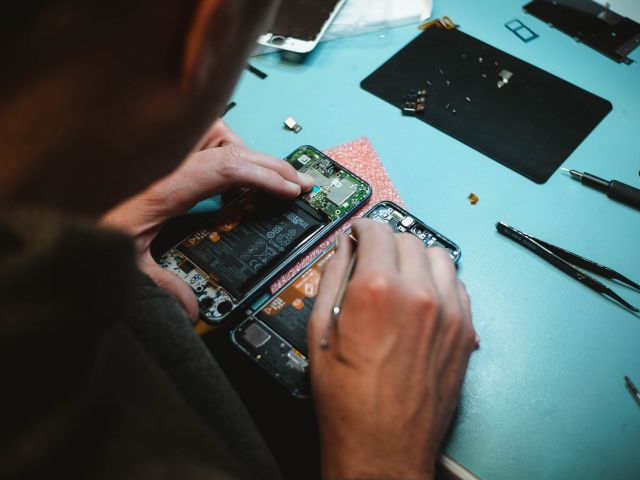Life in the middle of a bachelor’s: so many beginnings and endings

Photo: Shutterstock
Everyone does it all the time – a life of endless reflecting and coping. In between the lectures, the studying, the student job, the hectic biking, the bizarrely fast flow of time. You blink your eyes in January, and you end up in May just stunned by proper Danish weather finally taking a breather and letting summer sneak into the streets.
“I cannot believe we have exams in two weeks,” I keep saying to my friends. And my friends keep saying it to me. We are all bewildered at the thought of the semester ending, professors giving their final lectures, examination halls looming in the background. And not just the semester, the whole second year of our three-year degree. We are all aware that this is the last “real” semester, the next one is electives where we are all doing our own thing. Most of my friends are going away on exchange.
University life is full of new beginnings
Honestly, years at university have a certain kind of strangeness. Is there any other time in your life when you are living in so many beginnings at once? Not only real beginnings of friendships, connections, career paths but also the weight of the potential beginnings, of choices considered but not taken. What if I choose to minor in IT instead of finance? What if I take the student job as a marketing helper instead of a research assistant? It doesn’t matter, someone tells us. Career changes happen on average six times during your lifetime anyways. But that is just an additional ambiguity to neatly fit in the space between all the other ones, like a book in an empty bookshelf slot.
Courses are like half-formed “friendships”
There was a study a couple of years back which estimated that it takes you around 40-60 hours of spending time together in the first six weeks of meeting someone to consider them a friend. I think about that study a lot. If we assume that courses usually have around 50 contact hours in the span of 14 weeks, then the hours I have spent listening to the professor teaching the course is the equivalent of gaining approximately half a friend. (Obviously, this is an odd way to interpret the results, please don’t show this to my Quantitative Methods professor).
Maybe it is one explanation why the ending of a course sometimes feels so artificial; it is the half-formed, completely one-sided “friendship” disintegrating. Last semester, after Managerial Economics II, it took me around a month and a half to stop noticing Coase’s concepts all around me, which we covered in the course. Every time someone smoking passed by me on the street, it reminded me of the professor drawing the Edgeworth Box with multi-coloured markers to explain Coase’s theorem about externalities. Sometimes, it is just interesting to stop and observe the ending unfolding before your eyes.
Every sociology subject I have had has the point where it introduces this one sociologist pompously announcing that it is undeniably wrong to look at something as a dualism. So, at this point, I have to go and do the same. Maybe it is wrong to see student life in such a binary way. Maybe the point is to see your years at university as a compilation of beginnings – no endings, just sequels with new characters coming in, each bringing some kind of well-rounded moral to take in. My mom finds comfort in treating everything that happens in her life as a lesson. While it annoys me no end, I can acknowledge that it must help to look at everything as a series of lessons. Especially in an academic setting, where most of your schedule consists of allocated time periods where you literally have to learn something. Then you can look at every ending as one entity, as something that has imparted wisdom to you and has ended because you have gained everything possible to gain. I prefer the view nicely condensed in the quote by Dwight Schrute from the Office TV series: “Not everything is a lesson, Ryan. Sometimes you just fail.”
Use endings as a time for reflection
I see where my mother is coming from, though. Endings are taken more lightly, there is a logical finality to them.
I could also make the point that if you can look at everything as just another beginning, then you can definitely look at everything as just another ending.
But I think I would like to end this blog on a slightly more cheerful note.
May is a good time for reflection and practicing your coping with everything (or is that just called life?). You could think when you are so busy and mostly stressed out that your reflections might not be the most eloquent or well thought out. May is also a month for finals, for endings, conclusions. It is another phase completed, another new beginning just around the corner. Always a good idea to pause and look around, to notice endings happening, to stop and see if I have given myself enough time to think about the next new thing to jump into. Have I weighed the choices and potential futures? An ending is a good place for reflections.

































































































































Comments